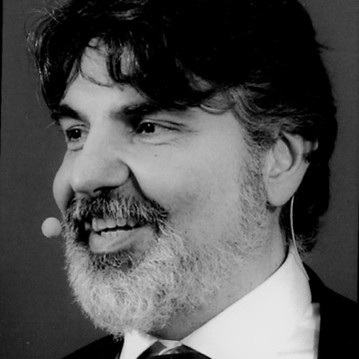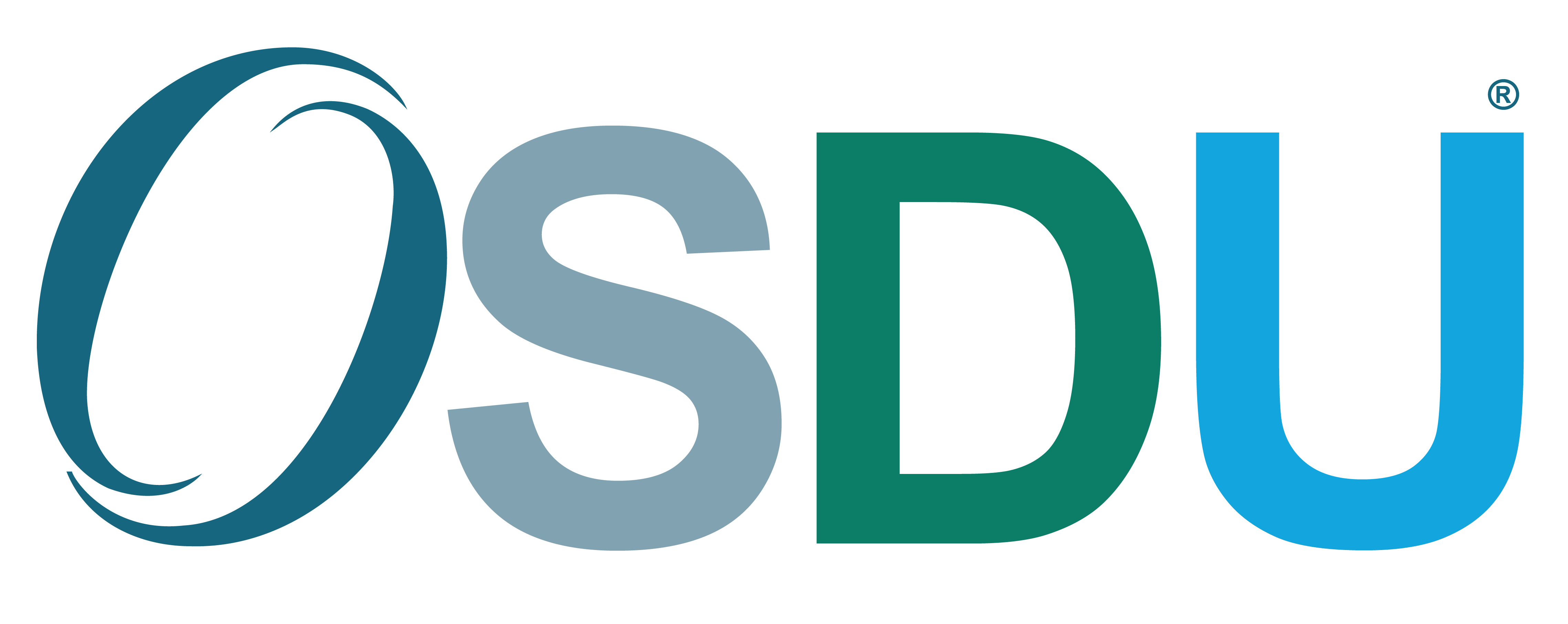By Ash Patel – CDMP, Marketing Specialist, The Open Group
Recently we reached out to Kadri Umay (Microsoft), to discuss his role as an elected CSP Representative to The Open Group OSDU® Management Committee.
Please tell us about your occupation and what made you get into your line of work?
Working as a Senior Director Data Manager for an Energy team, part of Azure Core product engineering. I’ve spent time in the Middle East, with customers like Saudi Aramco where I had the opportunity to observe the how the largest oil and gas company in the world operates and has been exposed to challenges and projects across the upstream, midstream, and downstream. For the last 12 years, I’ve been in the Microsoft HQ, being a field CTO in the customer support organization, and was one of the first in establishing an energy product development team under Azure Global organization.
I am a process control engineer by background, with a master’s focused on AI-based control of Fluidized Bed Combustors. Early on in my career, I worked extensively with industrial data across various sectors like steel, cement, refining, and energy. Most of my time was spent building, maintaining, and supporting the infrastructure that powered these systems. While technically rewarding, it left little room for innovation or exploring new possibilities. Over time, I saw the potential for the cloud to fundamentally change how we manage and use industrial data. Traditionally, data management was heavily focused on ingestion, conversion, and preparation—repetitive tasks that consumed most of our effort. What we needed was a true shift in how data was handled, and for me, OSDU initiatives represented that “cloud moment.” It created a shared foundation where data could be more accessible, standardized, and interoperable—enabling innovation at scale. That realization is what pulled me further into the intersection of industrial systems and digital transformation, where I’ve been ever since.
Please can you describe your journey with The Open Group OSDU Forum so far?
My journey with The Open Group OSDU Forum began in February 2014, when I had the opportunity to meet Johan Krebbers. We discussed the potential of leveraging the then-emerging Azure cloud services to build cost-effective and innovative solutions for the energy industry. Johan, a true visionary, shared ambitious ideas that, at the time, were ahead of what the technology could realistically deliver. Back then, cloud adoption was still in its infancy—many customers were debating whether to use it at all. We knew the promise was there, but the ecosystem wasn’t ready just yet.
Fast forward to 2018, we were invited to a pivotal meeting at Shell’s Woodcreek campus, where the initial concept of the OSDU Forum was presented to us by eight operators, along with a comprehensive list of expectations from Microsoft. I vividly remember the initial scope—it was simply to ingest and present well data through a unified interface. While it sounded simple on paper, achieving that interoperability was (and still is) a major challenge. In the following four months, we built a demo platform on Azure, defined key APIs, and collaborated with three ISVs to bring it to life. We even developed an early chatbot, powered by documentation, that could answer questions in Teams—something like a precursor to today’s generative AI tools.
Since then, I’ve been fortunate to remain deeply involved in the OSDU journey, including serving as an elected member of the OMC for the last term and continuing into the current one. Today, the OSDU Forum has moved from vision to reality. We are doing large-scale deployments across continents and managing production datasets for major operators. Looking ahead, our focus is on the “Journey to Venus”—delivering real-world solutions with measurable ROI and continuing to innovate, especially in enabling AI to support the industry’s triple challenge: ensuring energy security, reducing emissions, and delivering affordable energy to a growing global population.
How important is collaboration and what challenges to collaboration do we face?
Collaboration is absolutely essential—anything developed in isolation tends to reflect only a narrow point of view, making it difficult to meet the diverse needs of a broad customer base. True success, especially in platform development, is measured by adoption, and that can only happen when different service providers work together. However, collaboration often comes with challenges, particularly around competitive concerns and commercial interests. That’s where environments like the OSDU Forum play a critical role. The OSDU Forum provides a neutral space where operators can openly share their requirements, and ISVs, CSVs, and other service providers can collaborate to address them. This shared effort leads to a common understanding and solutions that are interoperable across different systems and environments. As a result, customers and vendors alike can focus more on innovation rather than on data wrangling and integration, with applications seamlessly acting on the same data across various workflows.
Are there any stories you would like to share that have shaped you professionally into the person you are today?
One story that has shaped me professionally dates to the early days of my career as a process control engineer. I started out programming DCS, PLC, and SCADA systems, while also doing my master’s on AI-based control of Fluidized Bed Combustors. During this time, I worked as a consultant on projects across steel, aluminum, cement, refining, and other industries modernizing the digital control system for their steam and energy production. One day, one of the founders of our company approached me with a new project opportunity—it was a digital oilfield implementation for Shell. At the time, digitizing and connecting onshore production assets was a very new idea, with no cellular or satellite networks to rely on. We worked with a company that built remote terminal units capable of transmitting data over VHF/UHF and retrofitted a SCADA system running on MS-DOS. That project opened my eyes to the potential of IoT and how digitalization could transform well operations and enhance safety. Later, I joined Microsoft and continued to work in this space. Along the way, I encountered game-changing innovations—like a CD labeled OPC, which introduced me to OLEDB for Process Control, allowing Excel to read industrial data. That moment sparked a shift in how I saw data connectivity in the industry, and to this day, I’m still building OPC servers and industrial data models for emerging domains like carbon capture and storage.
If you could develop a new type of technology, what would it be and why?
I would develop a system that can take CO2 from thin air and turn it into fuel. The system needs to be small, so that one can fit it in a car, be cost effective, and extract CO2 very quickly from very low concentration sources, such as the air we breathe, so that we can fill our car’s tank in minutes. CO2 is a major problem for the global warming of our planet. This technology, if sold at similar level to today’s gasoline prices, has a huge market potential, hence will also be a commercially successful product.
What is a business philosophy or principle that you follow?
One business philosophy I strongly believe in is the growth mindset—the idea that abilities and intelligence can be developed through dedication, learning, and effort. I apply this principle by embracing challenges, seeing feedback as an opportunity for improvement, and viewing setbacks as part of the learning process rather than failures. In a fast-evolving business environment, I find that staying curious, being open to new ideas, and continuously investing in personal and team development not only drives innovation but also builds resilience. This mindset helps me stay adaptable and focused on long-term progress, both for myself and the organizations I contribute to.
What advice would you give to someone who’s looking to work in your field?
If you’re looking to work in this field, my advice would be to focus on building a strong foundation in both the industry domain and technology. It’s a unique space that requires a blend of skills—you need to understand the challenges and dynamics of the industry while also having enough technical knowledge to propose solutions that are scalable and future-proof. I recommend starting with the industry side: get to know the core workflows, pain points, and opportunities. From there, develop and lead projects that bring innovative, meaningful change. Most importantly, be a systems thinker. The ability to see the big picture and design or apply technology components that work seamlessly together is key to delivering real value and long-term impact.
What are you most looking forward to for the year ahead?
Soft landing in Venus and building a successful colony. Very much like the story in the movie Martian. To me, this successful voyage will need to cover 4 main areas of hard work.
1- Delivering OSDU platform in mass scale deployments, with the requirements delivered end to end for the highest priority workflows. This needs data interoperability, application connectivity, and a hosting model that delivers the enterprise promises expected by the industry. The OSDU platform should be a “no brainer” to the largest operators, it should be so obvious that people will see the return of investment and be able use it without having to get a PhD dissertation thesis
2- AI enablement and an innovation enabler, after solving the basic problems of data sharing, everyone should be able start building net new ways of solutions for the energy industry
3- Certified, validated OSDU platform, users can be confident that the applications they build runs across all OSDU environments and delivers consistent results
4- A platform with zero critical vulnerabilities, with the right architecture and automated tools to detect and patch vulnerabilities
Ash Patel – CDMP- Certified Copywriter (CMP), Marketing Specialist, joined The Open Group in 2020, initially working in the Certification Team as a Certification Services Agent, before moving into the Marketing Team where he now works on marketing collateral, SEO (Search Engine Optimization), and co-hosting The Open Group Open Comments Podcast. Ash holds a First-Class Bachelor’s Degree in Media Production (BA hons) from Coventry University. He is based in the UK.

